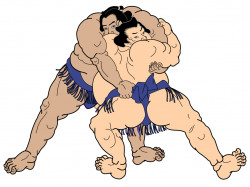
Paul McInnes: I’m very partial to watching Adam Moran eat insane amounts of food on his Youtube channel BeardMeatsFood. Beard, as he’s more affectionately known to his half a million subscribers, can eat humongous amounts of food in a very short period of time. 50 hamburgers in 30 minutes, 20,000 calories in one day — no problem. Beard is an eating legend and somewhat of a personal hero of mine.
Caroline Perrine: The Ballad of Buster Scruggs has all the ingredients of an amazing film: it’s a star-studded six-part Western anthology that displays the Coen brothers’ gritty and, at times, comic perception of the Wild West. This is highlighted by certain motifs that carry through the stories, which are otherwise unrelated. You only just fall for the charismatic and kooky Buster Scruggs when his part in the story ends, a move that — at least for some — decisively ends your emotional connection to the film. After this, the viewer experiences a strange phenomenon, in which you proceed to watch five more stories from a numbed, dissociated and dare I say it, bored place. I’m a big fan of the Coen brothers and really hope this effect is part of some grand statement or experiment, rather than a massive disappointment.
Takahiro Kanazawa: I have been enjoying CNN’s award-winning journalist Christiane Amanpour’s “Sex & Love Around the World” which recently came out on Netflix. In this six-part documentary series, she travels to different cities such as Tokyo and Delhi and asks local women about the rules of relationships and intimacy. She covers, adroitly, how manga culture works for young Japanese people who avoid being in real relationships. This show gives you a whole new perspective on how we perceive societies.
Julia Mascetti: Rather than ‘morally grey,’ “Golden Wind”, the fourth season of “JoJo’s Bizarre Adventure” makes ethical ambiguity sparkling and fabulous. The adaption of Hirohiko Araki’s beloved manga (first released in 1995) takes place in Naples in 2001, where half-Japanese teenager Giorno Giovanna is working his way up to becoming a mafia boss or, in a classic JoJo pun, a ‘Gang-STAR.’ Expect legendary fight scenes, colorful characters with strange powers, dramatic poses and the hyper-masculine yet camp shounen fun that fans of the series know and love. Araki’s passionate ‘honor amongst thieves’ depiction of Naples in the new millennium is entertaining and only mildly offensive to those of us of Italian descent. Newcomers to the series, such as those who have seen the recent “Hirohiko Araki Jojo Exhibition: Ripples of Adventure” at Mori Art Museum and want to know more, will have no problems, as every season functions as a stand apart story arc. Each episode is premiered weekly on Tokyo MX at 1:05am with repeats on other channels at more sociable hours over the weekend.







